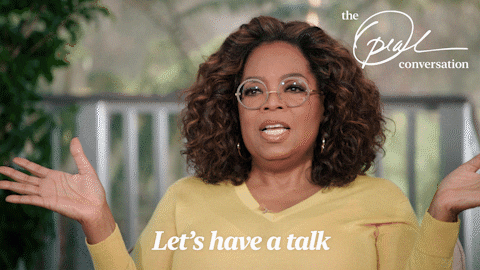How to overcome perfectionism and start making change happen
As someone whose birthday comes near the end of the year, and someone who has recently rounded out her fourth decade alive, I do a deep reflection for weeks leading up to the new year.
One of the primary questions I’ve been reflecting on is ‘How do I want to measure success in my next decade of life?’.
This question makes me smile.
If you had asked me this question 10 years ago, my answer would have been so different. Like most people, my ideas of success had been influenced by the internalised conditioning of white supremacist capitalist patriarchy.
I thought success was about how many accolades I could achieve, or how many people would know my name, or how perfect my public persona would appear.
If you’d asked me my biggest, most audacious goal, it would have been appearing on Oprah’s Super Soul Sunday to talk about my life-changing, best-selling, out of this world book.
Ironically, at the same time, all of these dreams scared the f— out of me.
Deep down inside, I felt like an imposter. Felt too weak to accomplish so much. Felt unworthy of having any of it.
And so for years I lived in this back and forth with myself of wanting things, and not allowing myself to enjoy them. Desiring things, and then hating myself when they happened. Working hard for things, and then judging myself when I created them.
And for that reason, success never truly felt like success.
It wasn’t until I started doing anti-racism work that things began to shift for me in a more substantive and meaningful way.
As I began to explore white supremacy, patriarchy, capitalism, ableism, anti-blackness, and so on, I began to understand that I was spending so much time and energy chasing ideas of success that were inherently oppressive to me and others.
Let me clarify, I don’t believe that wanting to achieve things, or win accolades, or make money, or even be interviewed by Oprah are inherently oppressive (these are all still dreams of mine 😝).
I actually really enjoy working towards things that are meaningful to me, and strive to do so in ways that are helpful, and that don't exploit me or other people.
But what I mean is that I believed external success was the only true marker of success. That being recognised, known, respected, and liked were how I could measure a ‘life well lived’. That achieving perfection was the goal; which meant no more healing to do, no more self-doubt to work through, no more mistakes to make, no more not having my sh– together.
A perfect mind, perfect body, perfect life.
Does any of this sound familiar to you? Is perfection something that you have strived for in the past, or something that currently informs how you live?
Do you feel like an imposter at work because you don’t know how to do everything perfectly yet?
Do you hold yourself back from talking about antiracism or social justice because you don’t know everything perfectly yet?
Do you judge what you have achieved this year as not good enough because you didn’t do it perfectly?
Do you judge how you look, what you say, how you write, or what you create, because it isn’t perfect?
Do you, at some deep level, believe you are unworthy because you are not perfect?
At some point or other in my life I have said Yes to all of these questions.
What turned things around for me was coming to understand that perfection is actually one of the key characteristics of white supremacy culture.
And that judging myself through the lens of perfection wasn’t a personal fault of mine, but rather a product of the societal conditioning that we are all steeped in.
According to author, activist, and facilitator Dr. Tema Okun, white supremacy culture (WSC) shows up in a myriad of ways that we have come to judge as ‘normal’, including perfectionism, a sense of urgency, only one right way, either/or thinking, individualism, and progress is bigger/more. While Okun’s work on WSC explicitly identifies how it shows up at work, I believe that these cultural ways of being and doing extend into all areas of our lives.
And so when I think about how so many of us, myself very much included, have been conditioned to assess success, I believe it has been through the lens of upholding WSC:
Striving to achieve perfection (according to WSC’s ideas of perfect - white, male, thin, able-bodied, etc.)
Working urgently, all the time (judging our success by speed, not sustainability)
Standardising only one way of achieving (with white supremacist capitalist ableist patriarchy as that standard)
Binary thinking (we’re either right or wrong, imposters or experts, successful or unsuccessful)
Rugged individualism (it only counts as ‘real’ success if we did it on our own without help)
Always striving for more (undervaluing goals and impact that are not recognised by thousands of people, and never being satisfied with what we’ve already achieved)
As I do an honest self-assessment of my life to date, I think it’s fair to say that WSC was the unconscious lens through which I lived, worked, and strived for success most of my life.
Like all of us, I didn’t have any choice because I didn’t know any better.
But now as I look ahead to my fifth decade of life, with what I know now, I want to consciously choose a new lens. One that intentionally resists WSC and centers good ancestor love, liberation, and leadership.
To that end, I’ve created a set of prompts for myself to help me rewire and redefine what success means to me. Feel free to take any that work for you, or use them to inspire your own :)
My Good Ancestor Love, Liberation, Leadership Prompts:
💗How can I give myself more love, not less, in this moment?
💞How can I give others more love, not less, in this moment?
⚡How can I use this challenging moment as an opportunity to love myself more?
💖How would I approach this situation differently if I already believed I was worthy?
👫How can I be more supported in this moment? How can I be more supportive in this moment?
🥳What can I celebrate about this moment when I let go of the idea that it has to be perfect?
🤩What am I liberated to create when it doesn’t have to be perfect?
💃Who am I liberated to be when I don’t have to be perfect?
👮Who do I need to release from the pedestal of perfection?
👐What part of my exquisite humanity is showing up in this moment? How can I hold it with love?
🛏️How can I rest today? How can I rest this week? How can I rest this month?
🌅What are my favourite restorative activities? When can I put one in my calendar this week/month?
🧰What do I really, truly want to create? Why? And with whom?
🤝Who do I get to joyfully co-create with this week/month?
🔆How can I do less, but with more purpose, vigour, and joy?
🔷How can I focus my energy on what matters to me most? What can I release myself from this week/month/year?
👍What do I want to say Yes to this year?
👎What do I want to say No to this year?
😊When was the last time I reveled in joy? How can I bring some joy into today?
🙌When was the last time I celebrated my small wins? What can I celebrate today?
🤗What previously rejected parts of myself do I want to learn to lovingly embrace this year?
🔥How can I say FU to WSC in my life this year?
Reading back these prompts fills my heart with so much love.
Having spent most of my life ruled by an internal sense of fear, inferiority, and unworthiness, it feels so good to look through a new lens. To learn to see myself and others past the damaging and judgemental veil of WSC.
This is life-long work of course. But as each year passes, and the veil grows thinner and thinner, I look forward to letting more love lead the way to what success and a well-lived life mean to me.
I can tell you how I want it to feel for me: Softer. Deeper. Slower. More expansive. More joyful. More restful. More open. Looser. Sweeter. Full of awe. Full of love.
And free of WSC’s stranglehold.
What do you want success to feel like for you? How do you want to measure success in your next decade of life? What does success mean to you when it’s not influenced by WSC?
I’ll continue to ponder these questions alongside you over the coming weeks. May we intimately know the kind of success we desire in 2023 and beyond.
To our healing + liberation,
Layla
P.S. Overcoming imposter syndrome was a huge part of my healing and liberation journey over the last 10 years. I believe that what success looks and feels like to me in my next decade will be more fulfilling because imposter syndrome no longer has me in a stranglehold.
If it’s something that’s still holding you back, I’d love to invite you to check out workshop ‘Say Goodbye to Imposter Syndrome’.
Let’s start creating a new lens of success, free of the burden of feeling like an imposter.


